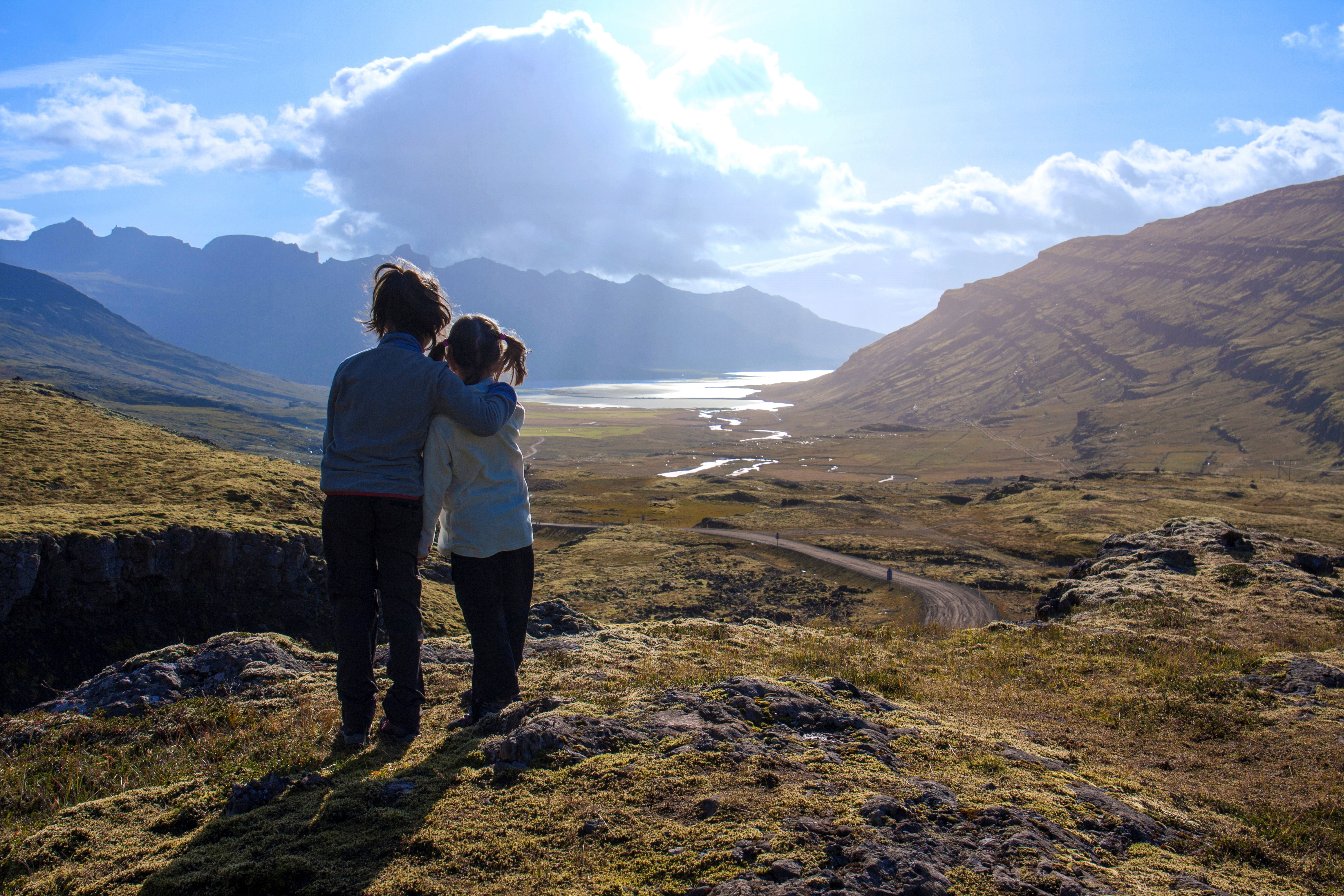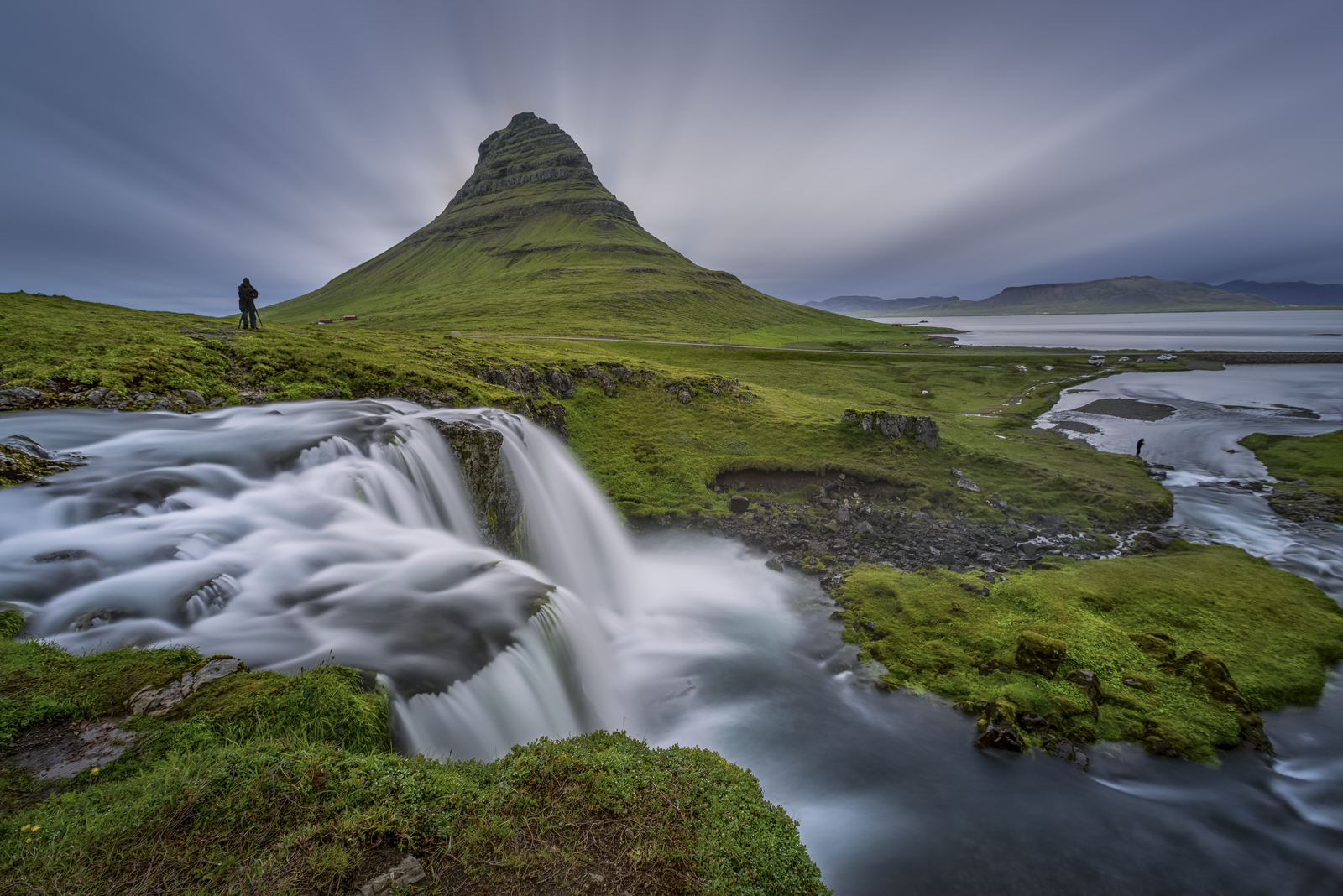Winter festival in Kópavogur, Iceland, featuring music, lights, and a sparkling Christmas tree in the town square.
10 GOOD REASONS TO LIVE IN ICELAND
(THOUGH WE THINK YOU WILL FIND PLENTY MORE)
1. Work-life balance
Icelanders are very family-centric—not surprising given the island's population of 369,000—and they value a healthy work-life balance. An average Icelandic workweek is 40 hours, and companies are typically family-friendly and flexible, understanding that employees may have dentist appointments, teacher's meetings, and calls to pick up a sick child.
2. Equality at work
Iceland has been a leader in gender equality since 2009. While there is room for improvement, the gender pay gap for the same job is 4.5%. In 2017, the Icelandic government introduced Equal Pay Certification to promote transparency. Larger workplaces must prove that they pay their employees the same wage for the same job without discriminating based on sex.
3. Easygoing business environment

Icelandic business culture is not very hierarchical, and regardless of your position within the company, equality is paramount. Due to the patronymic naming system, everyone is addressed by their first name, resulting in a less formal business environment compared to other settings. Meetings are concise and often take place over lunch or coffee.
4. Strong social protection
Iceland operates under the Nordic system of tripartite collaboration among employers, unions, and the government. The three parties collaborate to achieve mutually beneficial improvements, including enhanced worker safety, fair wages, and a better working environment. Tripartite collaboration encourages politicians and social partners to compromise and seek agreement to solve challenges while building societal trust and legitimacy.
5. Value innovation and a creative approach
Despite its small size, Iceland is remarkable at producing innovative solutions and creative output. Perhaps this is due to Iceland's long winters or inspirational scenery. More than likely, it boils down to the robust and inclusive Nordic welfare system. The social benefits of healthcare, childcare, parental leave, and affordable, high-quality education promote individuals to pursue their passions and explore opportunities without fear of "falling through the cracks." Combined with the Icelandic knack for ingenuity, many startups have flourished, discovering novel local solutions that also happen to meet global needs.
6. Safe and clean

Iceland has an extremely low crime rate, with violent crimes practically non-existent. Icelandic police do not carry guns, and the country ranks at the top of the IEP's Global Peace Index. Children often play outside unsupervised from an early age, returning only when their dinner or curfew time arrives.
Iceland is a leader in sustainable energy, powered almost entirely by hydroelectric and geothermal energy. Green energy and the lack of polluting industries have left Iceland's water, soil, and environment remarkably pristine. A diet rich in fish, clean air, and pure water has contributed to Icelanders achieving an average life expectancy at birth of 83 years.
7. Equality
Iceland has made significant progress toward achieving equal opportunities for women and men in society and their daily lives. Efforts toward gender equality are a matter of national pride. Annually, Iceland scores very high on the worldwide Social Progress Index in Inclusiveness and Acceptance of gays and lesbians. Well-known Icelanders are open about their sexual orientation, including former prime minister (2009-2013) Jóhanna Sigurðardóttir, the world's first openly gay head of state in modern politics.
8. Nature everywhere

Wherever you may be in Iceland, you are not far from the sea or the mountains. A 20-minute drive from downtown Reykjavík, you can find some alone time for a hike in the mountains or walk along the beach. There are numerous sightseeing opportunities, featuring a wide variety of hiking and biking trails, horseback riding, golf (and frisbee golf) courses, and even surfing. It allows you to leave the office at the end of the day and get outside, especially during the long summer nights. Find out more on Visit Iceland.
9. Society and culture
Given Iceland's small population, it is no surprise that it has a strong sense of culture and community. Even the largest city, Reykjavik, has a more seaside village feel. Iceland strives to maintain ties to its settlement (Viking) past while promoting music, art, and literature. Iceland’s culinary scene has undergone a significant transformation in recent decades, evolving from a focus on survival food to one that showcases sensational flavors. Today, you’ll find world-class chefs reinventing traditional ingredients with creativity and care, serving up everything from geothermally baked rye bread to Michelin-worthy tasting menus. Icelandic cuisine has established its place on the global food map, making it an essential part of the journey for any curious traveler.
10. Affordable healthcare and education

After living legally in Iceland for six months, you will become part of the Icelandic Health Insurance system and not pay more than ISK 25,000 for healthcare in a month. Pregnancy check-ups and childbirth in Iceland are free of charge.
Education in Iceland is affordable and of high quality. The schools are free (from primary through high school), with optional afterschool programs available at a minimal cost. Subsidized daycare is available for all children from the age of two to support both parents working. University education is reasonably priced, depending on the school and the student's location.